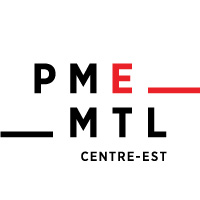Did you know that it is possible to share your workforce with another business? To join forces to better negotiate rates or to make the world greener? It’s a question of implementing mutually beneficial conditions. Here are three examples of successful resource sharing.
Sharing the workforce: A solution for retention
The sharing of employees among SMEs operating in different sectors of activity is another type of alliance that can help solve problems related to the retention of personnel. In 2018, PME MTL Est-de-l’Île introduced an inter-company human resource sharing pilot project that has proven to be effective.
Marie-Ève Gagnon, Human Resources Management Consultant, explains: “USD Global and Studio Artefact, two businesses located in the east end of Montréal, were having difficulty retaining employees because of fluctuations in production. During slow seasons, they had to lay employees off and risk not having them return when things picked up. We suggested that they take part in a project involving labour sharing.”
The solution has many benefits, including reduced staffing costs and efforts for employers and providing year-long work and better income for workers, not to mention enabling them to develop new skills.
“Obviously, in order for labour sharing to work properly, the businesses must have different production cycles, along with a certain degree of similarity in terms of job requirements. The employees, who take part in this process on a voluntary basis, must be supported in this endeavour by their employer,” Ms. Gagnon continues.
Reducing costs and protecting the environment
At the beginning of 2021, as part of a PME MTL initiative, businesses operating out of Les Immeubles Grover were invited to a meeting to discuss the common challenges they faced. It quickly became apparent that the cost of shipping packages was constantly increasing. They were also concerned about the environmental impact of this service.
According to Alexandre Skerlj, Director of E-Commerce Logistics for the PME MTL Network: “They were interested in an eco-friendly delivery solution that would allow them to consolidate their online orders with a single supplier who would be able to offer reduced rates.”
Once the solution was conceived, all that was left was to put it into action. Each business had their online boutique, but a technology solution was required to centralize the shipping orders and identify the appropriate supplier. The solution turned out to be Envoi Montréal, a delivery service operated by the Québec Retail Council and the City of Montréal, which offers a variety of zero-emission delivery options.
One key element in a successful alliance is engagement. A group of businesses that started using the service have volunteered to act as ambassadors. “A certain amount of flexibility was required in terms of deadlines to promote involvement in the project. It was also important to manage change among all stakeholders, including users, the supplier and the building owner.” Alexandre Skerlj points out.
Innovation through collaboration
To develop cleaner jet fuel, SAF+ was able to find some strong allies. The start-up business developed a technology that allowed it to produce synthetic kerosene that was less polluting than kerosene produced by refining petroleum.
In order to prove its concept, SAF+ required a number of partners, including Parachem, a hydrocarbon manufacturer, which helped to prove the technical feasibility of the production. They also enlisted the services of researchers from École Polytechnique and the Centre d’études des procédés chimiques du Québec for engineering of the pilot plant and future production plants. Experts from the International Reference Center for Life Cycle of Products, Processes and Services helped by assessing the environmental footprint of the solution. As a result, SAF+ was able to reach potential users, including Boeing, Airbus, Air Transat and Aéroport de Montréal, which plans to test the fuel and help assess the potential for commercialization.
Frédéric Loprieno, Management and Financing Director at PME MTL Est-de-l’Île, explains: “The project is still in the R&D phase, and it will continue to evolve in a context of uncertainty with respect to regulations concerning the use of greener fuels and the associated commercial opportunities. Therefore, in addition to technical partners, SAF+ must join forces with clients in order to be properly informed of their needs.”
PME MTL helped SAF+ to recover at a critical time. “In addition to providing financing, we conducted an analysis of the project’s potential. We also opened doors for them to find partners. The moral of the story: There is strength in unity!” Mr. Loprieno concluded.
_
